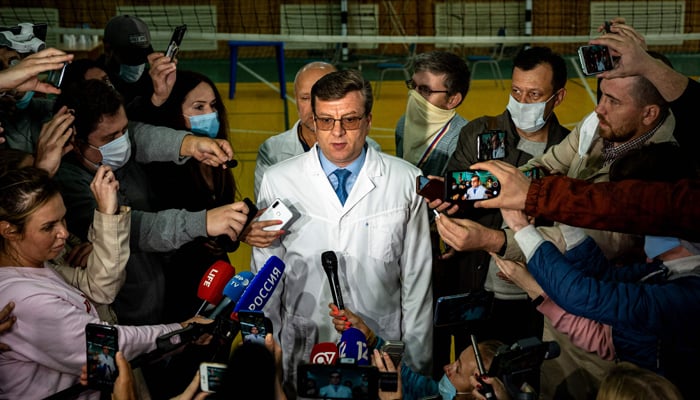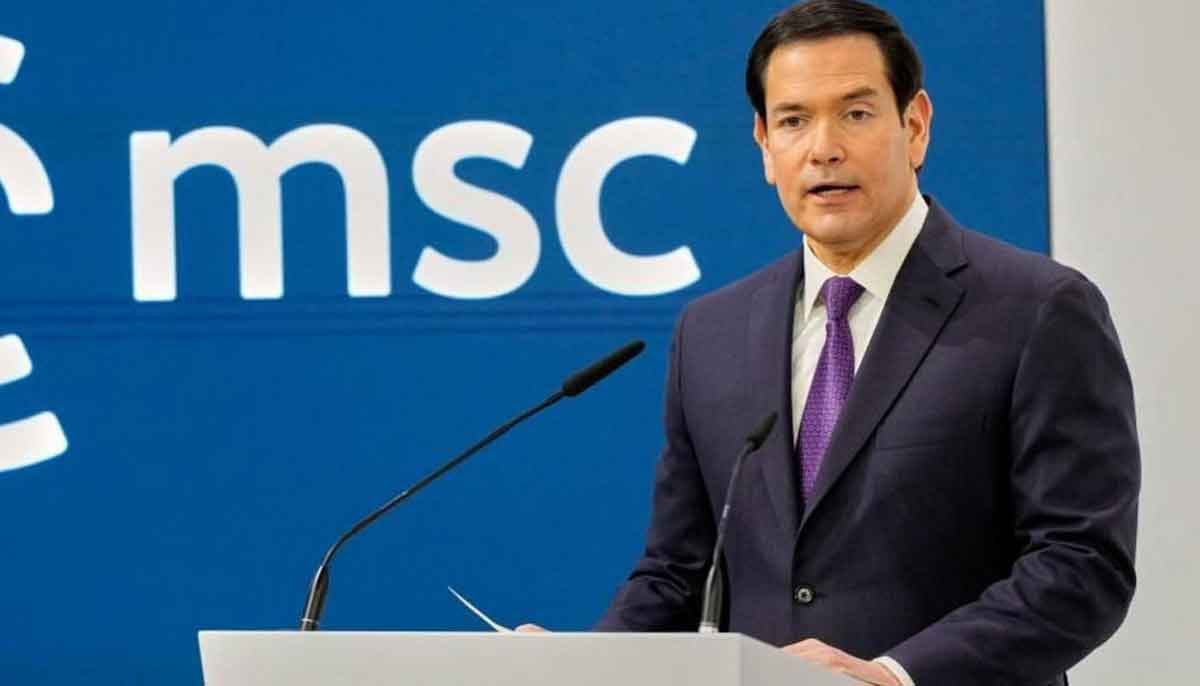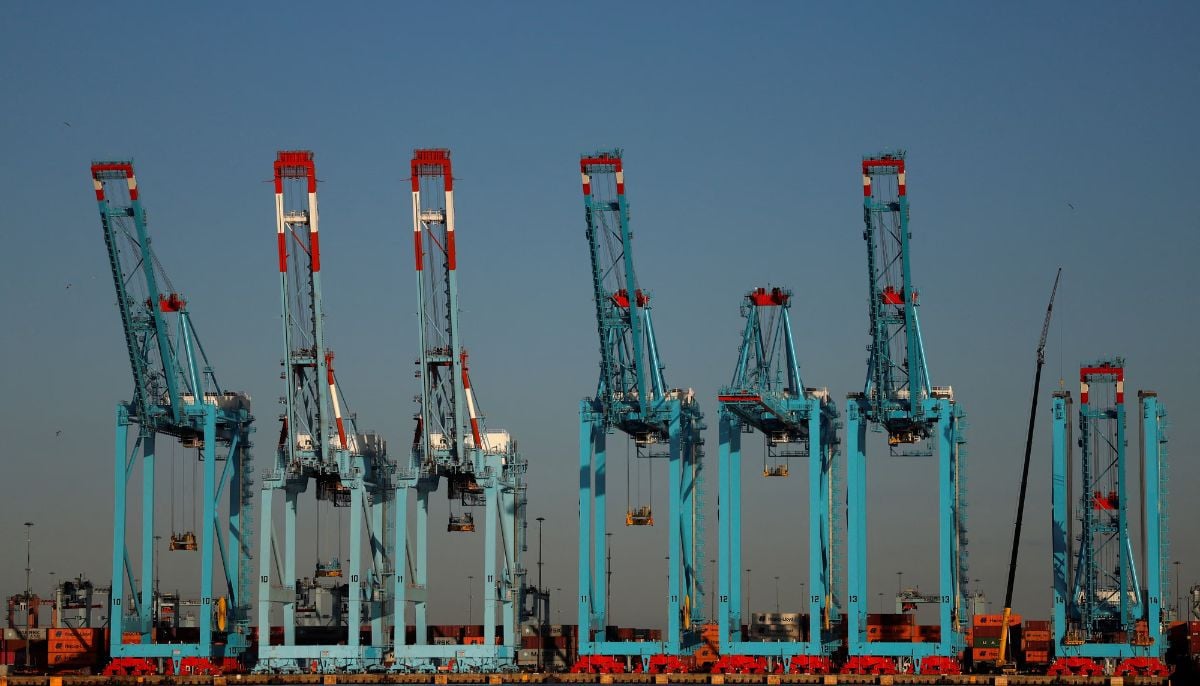Putin critic Navalny allowed to fly to Germany
Doctors in Omsk, where Navalny was in a coma in intensive care, changed tack after initially insisting he was too ill to fly
OMSK: Russian doctors treating opposition figure Alexei Navalny for suspected poisoning backed down on Friday and agreed he could be evacuated after his family and aides battled for him to be taken to Germany.
The doctors in the Siberian city of Omsk, where Navalny was in a coma in intensive care, changed tack after initially insisting he was too ill to be moved.
The 44-year-old lawyer and anti-corruption campaigner's wife had appealed to President Vladimir Putin and staff had accused authorities of putting his life at risk by delaying the evacuation.
"We... took the decision that we do not oppose his transfer to another hospital, the one that his relatives indicate to us," the deputy chief doctor of the Omsk hospital, Anatoly Kalinichenko, told journalists.
He said Navalny's condition had "stabilised" and his wife and brother "took the risks on themselves" for moving him.
"It won't happen instantly, it will happen today," he said.
German doctors who flew in on an air ambulance visited Navalny earlier Friday and the NGO that chartered the plane, the Cinema for Peace foundation, said they were "able and willing" to fly him to Berlin.
The turnaround followed a letter from Navalny's wife Yulia with a direct appeal to Putin and after aides asked the European Court of Human Rights to intervene with the Russian government.
Navalny, who is among Putin's fiercest critics, lost consciousness while on a flight on Thursday and his plane made an emergency landing in Omsk.
Navalny's aides say they believe he was poisoned and that something was put in his tea at an airport cafe, but doctors on Friday said "no trace" of any poison was found.
"The diagnosis of poisoning was finally ruled out," Kalinichenko said.
Russian doctors said their preliminary diagnosis was a "metabolic disorder" caused by a sudden drop in blood sugar levels.
Kalinichenko said the Russians had a consultation with the German doctors and they examined Navalny.
"They were fully satisfied with all they saw, they agreed with our diagnosis," he said.
"They guaranteed they would get him to the destination, Berlin as we understand," he said, adding that Russian doctors initially thought that a transfer was "premature".
Navalny is the latest in a long line of Kremlin critics who have fallen seriously ill or died in apparent poisonings.
His wife had said she wanted him treated "in an independent hospital, whose doctors we trust".
'Play for time'
"It's a shame that it took the doctors so long to take this decision," Navalny's spokeswoman Kira Yarmysh said on Twitter. "The plane has been waiting since morning, the papers were also ready then."
She had earlier claimed Russia's refusal to evacuate Navalny was a ploy to "play for time" and make it impossible to trace poison, posing a "critical threat to his life".
Regional police said they found traces of an industrial chemical after swabbing Navalny and his luggage, while suggesting it came from a disposable cup.
The air ambulance dispatched to take Navalny to Berlin for treatment landed in Omsk after Chancellor Angela Merkel extended an offer of treatment.
European Union leaders including Merkel and French President Emmanuel Macron have voiced concern for Navalny, who has faced repeated physical attacks and prosecutions in more than a decade of opposition to Russian authorities.
Navalny lost consciousness shortly after his plane took off on Thursday from Tomsk in Siberia, where he was working to support opposition candidates ahead of regional elections next month.
Yarmysh said he had seemed "absolutely fine" before boarding the flight and had only consumed a cup of tea at the airport.
She said she was sure he had suffered from an "intentional poisoning" and blamed Putin.
Navalny has made many enemies with his anti-corruption investigations, which often reveal the lavish lifestyles of Russia´s elite and attract millions of views online.
Previous poisonings
He has suffered physical attacks in the past, including a 2017 incident where he endured chemical burns to his eye after green dye was splashed on his face.
Last year Navalny said he suspected poisoning when he suffered rashes and his face became swollen while serving a short jail term after calling for illegal protests.
He has been the target of multiple criminal probes and spent numerous stretches in police cells for organising illegal protests, while his Anti-Corruption Foundation was regularly raided by police and investigators.
The latest incident follows several infamous poisonings of Kremlin critics in the past.
Britain named two Russian spies as suspects after Russian double agent Sergei Skripal and his daughter Yulia were poisoned with the nerve agent Novichok in the city of Salisbury in March 2018.
Former Russian security service agent Alexander Litvinenko was fatally poisoned with radioactive polonium in a cup of tea in London. Russia refused to extradite chief suspect Andrei Lugovoi, who became a nationalist MP after the 2006 attack.
Several other opposition figures have suffered severe illnesses in Russia that they blamed on poisoning.
-
Drama outside Nancy Guthrie's home unfolds described as 'circus'
-
Marco Rubio sends message of unity to Europe
-
Hilarie Burton reveals Valentine's Day plans with Jeffrey Dean Morgan
-
Jacob Elordi, Margot Robbie on 'devastating' scene in 'Wuthering Heights'
-
China to implement zero tariffs on African imports in major trade shift
-
Jack Thorne explains hidden similarities between 'Lord of the Flies' and 'Adolescence'
-
Elon Musk vs Reid Hoffman: Epstein files fuel public spat between tech billionaires
-
New Zealand flood crisis: State of emergency declared as North Island braces for more storms












